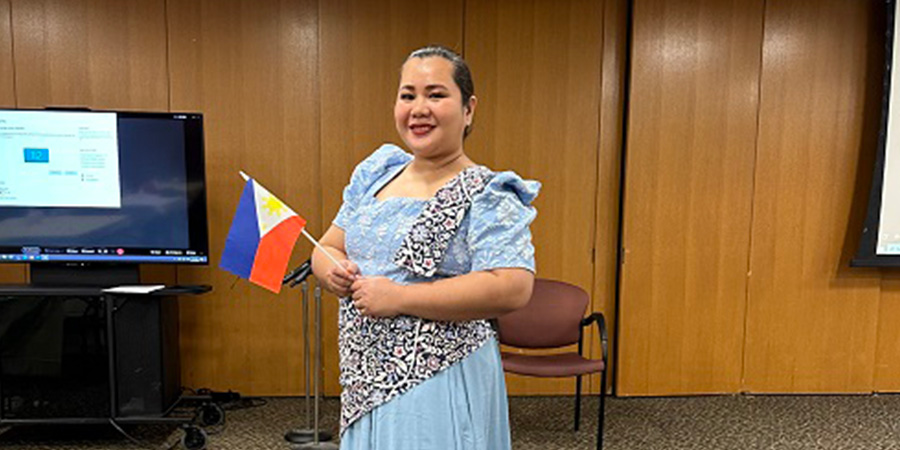Rhea Pe, RN, BSN – General OR
July 27, 2025
Describe the transition for you coming to a new country.
The transition to a new country can be a powerful, life-changing experience—exciting but emotionally and mentally demanding. Before leaving, there’s great anticipation, excitement, and a bit of fear, but overall, you’re dreaming of better opportunities—not just for yourself but for your family.
The first few weeks were a cycle of trial and error: maneuvering through unfamiliar systems like school, work requirements, legal paperwork, healthcare, banking, getting an apartment, and figuring out school zones. As time passed, we adapted, developed our own routines, and built a sense of belonging.
In the end, this journey is not just about relocation—it’s about transformation. It reshapes your identity, broadens your view of the world, and teaches you strength in ways you never expected. It’s both a letting go and a becoming—and for many, one of the most defining journeys of their lives.
What are some of the sacrifices you have made to be here?
Coming to the U.S. from the Philippines meant sacrificing the comfort of home, the nearness of family, and the culture I grew up with. I left behind familiar food, language, traditions, and the warmth of everyday life. I’ve missed birthdays, holidays, and ordinary moments with the people I love.
Starting over in a new country meant letting go of stability and facing uncertainty. I had to rebuild everything from scratch—work, relationships, even confidence. It was a trade: comfort for opportunity, familiarity for growth. It wasn’t easy, but it taught me strength, independence, and the value of everything I left behind.
What are some of the differences between practicing nursing in your previous country and in the United States?
Nursing in the Philippines:
-
Lower nurse-to-patient ratio (often understaffed)
-
Limited medical equipment and technology
-
Broader, less-defined roles—nurses often take on multiple tasks
-
Lower salary and fewer benefits
-
Hierarchical structure; doctors lead most decisions
-
Less legal accountability and formal documentation
-
Strong camaraderie among staff, but a high workload
-
Less focus on continuing education and certifications
Nursing in the U.S.:
-
Better nurse-to-patient ratio (safer staffing standards)
-
Access to advanced medical technology and electronic records
-
Clearly defined scope of practice and specialization
-
Higher salary and comprehensive benefits
-
Collaborative healthcare team—nurses have more voice in patient care
-
Strict legal responsibilities and detailed documentation required
-
Greater emphasis on patient safety, advocacy, and autonomy
-
Encouragement for continuing education, certifications, and career growth
What was your nursing specialty in your home country? Does it differ from your specialty here?
Most of my experience before coming to the U.S. was in the Kingdom of Saudi Arabia, where I worked for more than six years in the Operating Room as a PreOp/PACU, Anesthesia Nurse, and Scrub/Circulating Nurse. In the Philippines, I worked as a Labor and Delivery Nurse for over five years.
What is the best part about working at GBMC?
The best part is the strong culture of collaboration and patient-centered care. Everyone—from physicians to support staff—works as a team to ensure patients receive the highest standard of care. GBMC also supports professional growth through continuing education, training, and cross-departmental support.
What truly sets GBMC apart is its sense of community. Despite being a busy healthcare setting, there’s a genuine spirit of respect, compassion, and teamwork.
Have you had the chance to participate in GBMC’s heritage month celebrations?
Yes, two years in a row! My friends and I were able to showcase Filipino dances.
What is one fun fact about you?
I’ve held three nursing licenses and passed three nursing board exams (Philippines, Saudi Arabia, and the U.S.). I can also speak three Filipino dialects (Karay-a, Ilonggo, Bisaya) and three languages (Arabic, Tagalog, English).
Anything else you'd like to share?
I’m just thankful I was placed at GBMC. We feel appreciated and supported here. After my contract ends, I’ll officially be the Neuro Team Lead.

